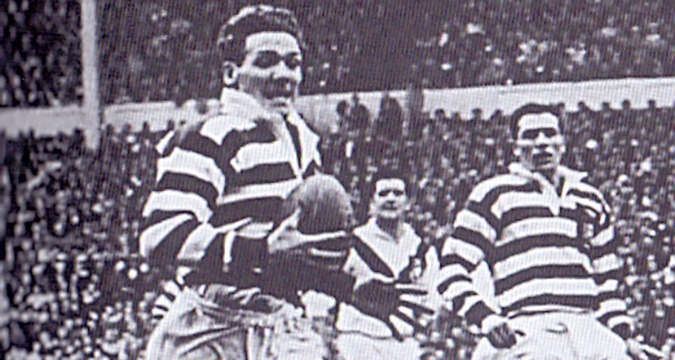 Liverpool City's GB star
St Helens-born Ray Ashby made his name at Wigan, where he became one of the best fullbacks in the world.
He is best known for his outstanding performance at Wembley in 1965 that saw him named a joint winner of the Lance Todd Trophy along with Hunslet’s Brian Gabbitas. He also played for Liverpool City and Blackpool. H
Liverpool City's GB star
St Helens-born Ray Ashby made his name at Wigan, where he became one of the best fullbacks in the world.
He is best known for his outstanding performance at Wembley in 1965 that saw him named a joint winner of the Lance Todd Trophy along with Hunslet’s Brian Gabbitas. He also played for Liverpool City and Blackpool. H Rugby League Heroes: Ray Ashby
 Liverpool City's GB star
St Helens-born Ray Ashby made his name at Wigan, where he became one of the best fullbacks in the world.
He is best known for his outstanding performance at Wembley in 1965 that saw him named a joint winner of the Lance Todd Trophy along with Hunslet’s Brian Gabbitas. He also played for Liverpool City and Blackpool. H
Liverpool City's GB star
St Helens-born Ray Ashby made his name at Wigan, where he became one of the best fullbacks in the world.
He is best known for his outstanding performance at Wembley in 1965 that saw him named a joint winner of the Lance Todd Trophy along with Hunslet’s Brian Gabbitas. He also played for Liverpool City and Blackpool. H 